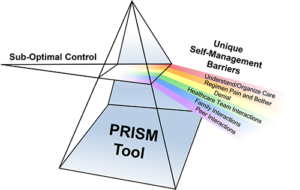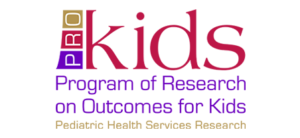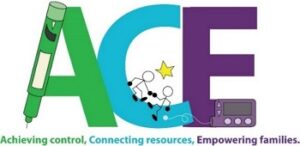- Children and Young Adults
- Chronic Conditions
- Datasets and Research Tools
- Diabetes
- Engagement in Care
- Engagement in Research
- HIPxChange
- Quality and Safety
*Free registration is required to use the toolkits provided within HIPxChange. This information is required by our funders and is used to determine the impact of the materials posted on the website.
About PRISM: A survey for adolescents and parents to identify diabetes self-management barriers
It is estimated that over 165,000 children under age 20 have type 1 diabetes, and the number of cases has been increasing over time.
Due to the multi-faceted approach that is typically needed to manage diabetes, it is difficult for children and their families to adhere to their diabetes self-management regimens. Less than half of youth with diabetes have optimal glycemic control, and approximately 20% have poor glycemic control.
When youth are unable to achieve glycemic control, serious complications can result that affect the child’s quality and longevity of life, and the family may become both emotionally and financially stressed. Additionally, youth with sub-optimal glycemic control are more likely to have sub-optimal control as adults.
 Several strategies for effective glycemic control exist, but no single strategy can adequately address the barriers to self-management that every child and family experience. Families play an essential role in glycemic control and positive diabetes outcomes. Therefore, understanding the unique barriers that the youth and families experience can help clinicians provide family-centered care and improve the efficacy of diabetes self-management strategies.
Several strategies for effective glycemic control exist, but no single strategy can adequately address the barriers to self-management that every child and family experience. Families play an essential role in glycemic control and positive diabetes outcomes. Therefore, understanding the unique barriers that the youth and families experience can help clinicians provide family-centered care and improve the efficacy of diabetes self-management strategies.
The Problem Recognition in Illness Self-Management (PRISM) tool was developed to address this need. Using the tool, clinicians can identify the barriers that youth with type 1 diabetes and their families are facing, and then tailor self-management resources to these needs.
Who should use this toolkit?
This toolkit is designed for use by clinicians, health care administrators, and researchers to identify youth and family barriers to diabetes self-management, which can then help facilitate the identification of appropriate interventions based on the specific needs of each patient and family. The responses to the survey may reveal, for example, a need for services that the clinician can help facilitate, such as a diabetes education visit.
Additionally, health care administrators or researchers can use this tool to better understand the barriers to diabetes self-management that parents, children, and adolescents are facing. For example, PRISM-based assessments of the prevalence of self-management barriers can be used to make staffing, resource, or program decisions. Researchers may want to use these measures as outcomes in studies or as mediators in causal pathways.
PRISM is not currently available in languages other than English. We will update this toolkit with progress on that effort as it develops. We welcome other translations of the tool.
While PRISM so far has been validated only in type 1 diabetes, many of the questions could also be used or adapted for other chronic conditions requiring self-management in youth, such as type 2 diabetes, asthma, epilepsy, inflammatory bowel disease, or renal disease. We would welcome collaborations that seek to use PRISM with other chronic illnesses.
Work is currently underway to adapt and validate the PRISM tool for use with adults with type 1 diabetes. We will update this site with progress on that effort as it becomes available.
What does the toolkit contain?
This toolkit contains:
- A PRISM manual, which contains information on how to administer and score PRISM and printable copies of the PRISM tools
- An editable Microsoft Excel workbook that contains the validated PRISM tools:
- A survey for adolescents (13-17 years old) with diabetes
- A survey for parents of youth or adolescents (8-17 years old) that have diabetes
- A Microsoft Excel workbook for for rapid, accurate scoring of PRISM
Development of this toolkit
The Problem Recognition in Illness Self-Management (PRISM) Toolkit was developed by researchers and clinicians (Principal Investigator: Elizabeth Cox, MD, PhD, at the University of Wisconsin-Madison School of Medicine & Public Health – Department of Pediatrics).
This project was supported by the University of Wisconsin Institute for Clinical and Translational Research (UW ICTR), grant 9 U54 TR000021 from the National Center for Advancing Translational Sciences (previously grant 1 UL1 RR025011 from the National Center for Research Resources). Additional support was provided by the University of Wisconsin Graduate School, the University of Wisconsin – Madison Department of Pediatrics, University of Wisconsin School of Medicine and Public Health’s Health Innovation Program (HIP), and the Wisconsin Partnership Program. The content is solely the responsibility of the authors and does not necessarily represent the official views of the National Institutes of Health or other funders.
References
Cox ED, Fritz KA, Hansen KW, et al. Development and validation of PRISM: A survey toolk to identify diabetes self-management barriers. Diabetes Res Clin Pract 2014;104(1):126-35.
Toolkit Citation
Cox ED, Fritz KA, Hansen KW, Brown RL, Wiles KE, Fate BH, Young HN, Moreno MA. Problem Recognition in Illness Self-Management (PRISM) Toolkit. Madison, WI: University of Wisconsin School of Medicine and Public Health’s Department of Pediatrics, Health Innovation Program; August 2016. Available at: https://hipxchange.org/PRISM
Please send questions, comments and suggestions to HIPxChange@hip.wisc.edu.





